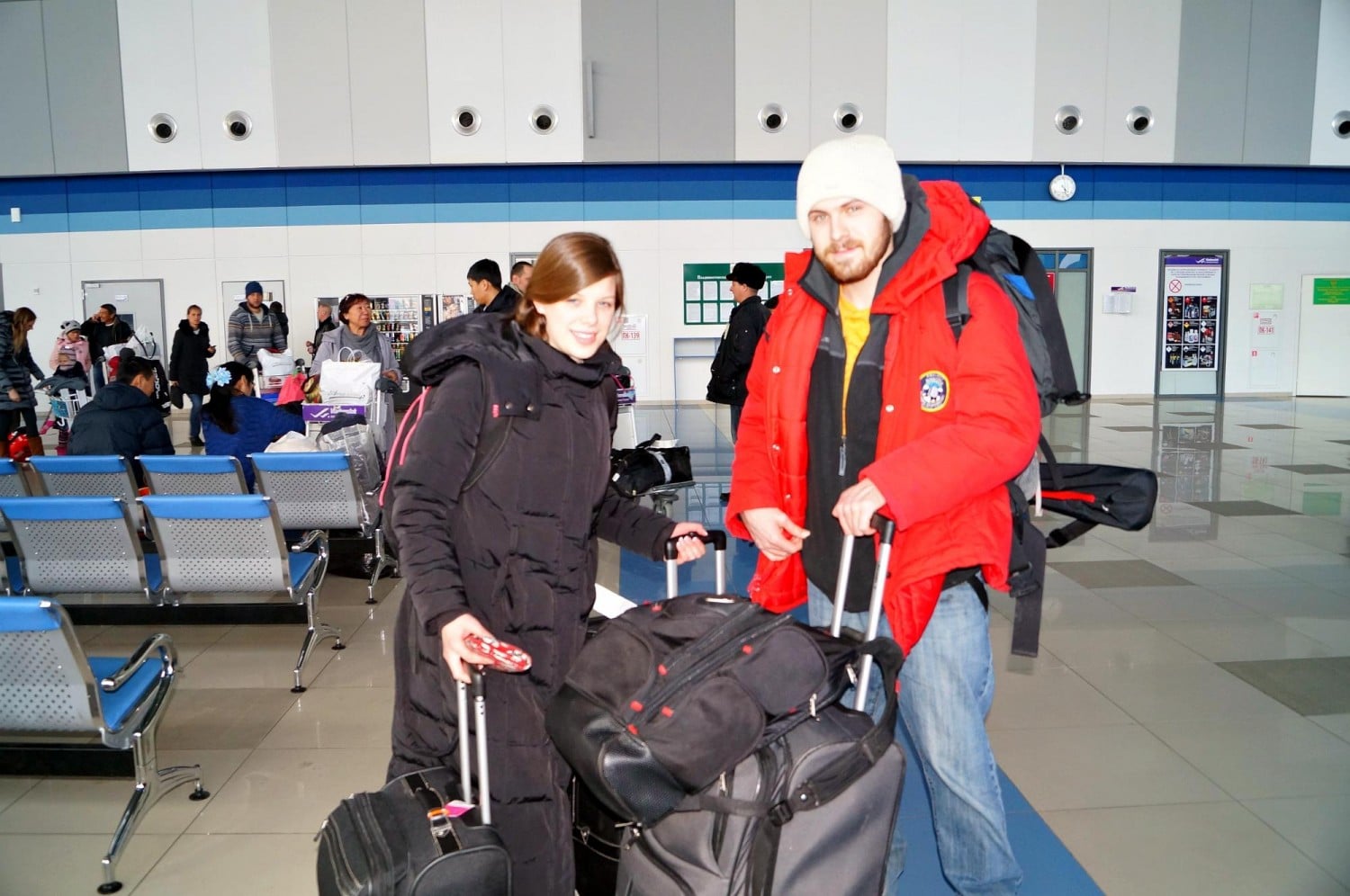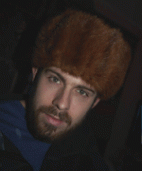Salutations reader! My name is Ian (Yan in Russia) and I’m currently studying Russian as a Second Language and Far Eastern Studies at Vladivostok State University of Economics and Service. I’m naturally weak in language acquisition and this experience of studying abroad in Russia is actually my first time out of the USA alone. So, if you feel unconfident with the level of your speaking skills, don’t worry! I’m surviving and so can you! I’ll be posting food reviews, interesting facts, and helpful tips as the time goes by, but first… here’s my story:
When people find out that I am a Russian minor, the first question they typically ask is “why are you learning Russian?” If you asked me this two years ago, my answer would have been around the lines that I found Russian an interesting language: exotic, yet sophisticated. It would give me an edge in both professional settings and personal settings – something that people could use to identify me as unique. Given that I had no background in Russian history, literature, or art, I was simply taking Russian because I thought it was “cool.”
But that was then, and this is now. I noticed that my reasons have changed as I progressed through my studies of Russian. Russian is a difficult language. Russian is difficult for me. I wish I could say that I was as gifted in the acquisition of Russian as I am in other subjects, like religious studies, but I must admit that I am not.
Speaking Russian hurts. Literally. Rolling R’s are not my strong suit! Whereas my voice is clear and stable when I present my presentations in English, in Russian, my whole body is on edge. Voice trembling, legs shaking, brow soaking, I would like nothing else than to sit down and never speak Russian again! My weakness in Russian is evident in the reactions and attitudes of my peers; always picked last for conversation and usually with a sigh of annoyance (as if I am a chore). The environment in which I learned Russian was rough.
Before I started studying Russian, I decided to quit learning the piano. That choice haunted me. I quit because I told myself it was “too hard”; my hands clumsily rejected the signals from my brain when they were supposed to play the appropriate notes. My teacher’s constant disappointed look when I would fail the weekly practice quizzes eventually drove me to never play again. And I thought I was happy not playing. But as I grew, I realized what a terrible mistake I made. Music and its creations are one of the most beautiful skills human beings have the ability to possess and I threw away the chance to create music. Communication is another beautiful skill – as is being able to rise above cultures and communicate globally. I won’t throw away another chance again and I definitely won’t give up on Russian.
So, that’s why I’m doing it. That’s why I’m going abroad. I need vindication that I am able to do something that does not come naturally to me. I would like to prove to my fellow peers that I am able to speak, but more importantly I want to prove to myself that I can do it. And I’m really hoping immersion in Vladivostok, a regional Russian city with relatively few English speakers, will help me do that.
I have a secondary reason for heading abroad as well.

I am a Religious Studies major and a Russian minor. Religion plays an integral role in many peoples’ lives and in international relations. Where many students will simply focus on one subject, like biology or political science, I get to critically examine all subjects as religion affects everything from what type of foods people eat and who, in their eyes, does and does not belong in their community or even country.
During my sophomore year, I took a class on Religion in the Pacific Northwest that expanded my vision for my future. In case you are unaware, whenever religious affiliation surveys go out the general public, the Pacific Northwest has been consistently answering “none;” they’ve been doing this since surveys started going out in the late 1800s. Academics in my field now deem the Northwest as the “none” zone, a place where no single religious tradition has ever broken 50% (in the history of the territory). The closest anything has come is Protestant Christianity with 44% in the early 1900s. This sort of case study made me interested in how academics look at religion and how they study it. In a country where Christianity makes up a dominant religious tradition, how would academics study a place that outlawed religious tradition? And how would academics study a place where its language is so heavily linked with religious traditions (think about сорок (the number 40 in Russian)? These questions have driven me to continue my studies in Russian.
I’m hoping to use my Russian to do some primary source research on Russian religious tradition in contemporary times. I’m also hoping to use my Russian to open potential research areas in Eastern Europe and Central Asia, where Russian is also commonly spoken. The more I think about it, the more excited I get! I’m particularly drawn to Buddhism, which is extensively in Central Asia and some parts of Russia. I know that Vladivostok has an interesting history with Japan, where Buddhism is also popular, and would like to see if this religious tradition has found a place here. The only way to really find out is to immerse and observe!


